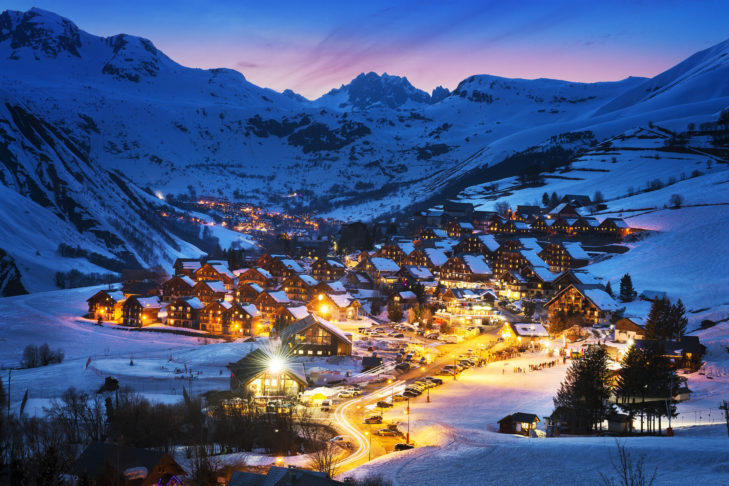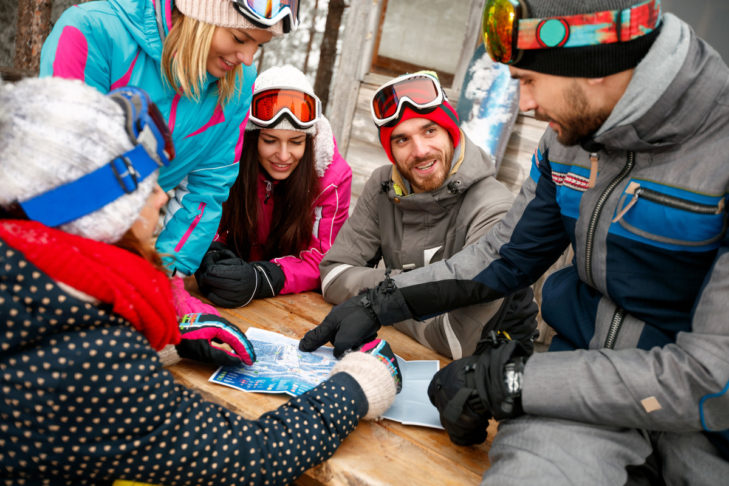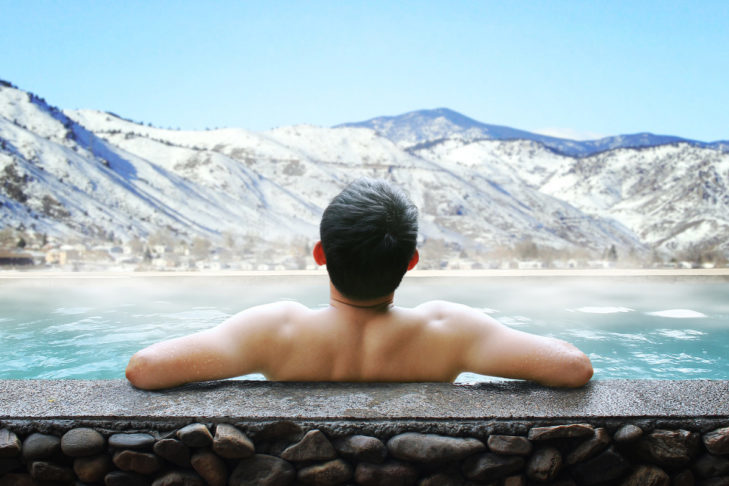A perfect ski holiday is the dream of every winter sports enthusiast. But what exactly does that mean and how can you plan your ski holiday? In the following article, SnowTrex presents numerous tips for the perfect ski holiday – from planning to departure.
The best region for skiing
Some love the cosiness of the Tyrolean Alps, others prefer the adventure of deep snow in Japan, and still others are looking for winter fun for the whole family. Which region is the best for skiing depends largely on your own preferences, but also on the group you are travelling with.
If the ski holiday is planned as a romantic honeymoon, it may well be an exclusive ski lodge. On the other hand, if you are going on a ski holiday with your family, it is more important that the children get their money’s worth. Here, for example, a ski resort with renowned ski schools in the Swiss or Austrian Alps may be the best choice for children. If snowboarders and skiers go on a winter holiday together, a region with fun parks, for example, can mean variety and fun for everyone.
The ability of all those travelling together is also an important factor when choosing a holiday destination. Regions with unprepared piste sections are ideal for a group of advanced skiers who enjoy off-piste skiing. If, on the other hand, you are travelling with beginners, you should make sure that there are also easier runs in the ski resort.
When choosing the best ski holiday region, it is therefore advisable for the group to get together and talk about their respective wishes, expectations and abilities. This is the only way to find the right place for everyone:
- For example, those who want rustic huts, picturesque villages and varied après-ski all in one will find the best ski resorts in Austria.
- France, on the other hand, offers endless expanses of skiing and cheaper accommodation.
- Those looking for a combination of impressive mountain scenery, excellent service and tranquillity will be happy in the Swiss Alps.
- Italy is a perfect ski holiday destination for those who value good weather, delicious food and affordable accommodation.
- Those who want to try something new, on the other hand, can venture to the ski resorts in the Czech Republic or Slovenia. These resorts are particularly suitable for beginners and offer both affordable accommodation and lift passes.
Preparing for your holiday starts with fitness
If you are going on a ski holiday, you should ideally start getting in shape – if you aren’t already – about three months in advance. This includes endurance and muscle training: you can train your endurance by jogging or swimming, for example, while yoga or gym equipment are ideal for muscle training. It’s best to keep fit all year round to avoid possible injuries on your ski holiday.
For the perfect ski holiday, it is not only important to keep yourself in good condition, but also your equipment. This includes, above all, waxing and sharpening your skis and checking their bindings. It is best to have this checked and done in a DSV-certified specialist shop. If you have small children, you should also check whether last year’s winter clothing still fits.
A packing checklist can be helpful to make sure you don’t forget any of your gear. The following items should not be forgotten under any circumstances:
- Ski/snowboard gear with all the pertinent accessories (boots, poles, protectors, helmet)
- Ski clothing (socks, thermal undergarments, outerwear, gloves, hat, scarf, ski trousers and ski jacket)
- Ski goggles
- Sun protection (incl. lip balm with UV protection!)
- Backpack that you can take with you on the piste, for example to store snacks, water and a camera
- Passport
- First aid kit
You should also take out global/international health insurance for your ski holiday abroad.
The logistical part of the planning should also be considered. After all, if your ski holiday starts with constant traffic jams, the holiday mood will quickly evaporate. Good route planning is therefore recommended. It is also advisable not to set off on the first day of the holidays only to be stuck in a traffic jam for hours. Research ahead of time where and when the worst traffic jams are likely to be. If you set off a day or two later, you can start your journey in a more relaxed way.
Regular breaks are important during the journey – if you inform yourself in advance, you can also enjoy great views or find special places: A small lake to relax by, a fantastic view of the mountains or a rest stop with a playground to unwind! It can also be worthwhile to drive part of the route away from the motorway and enjoy the scenery or make short stops at places of interest. This increases the anticipation, makes the journey more pleasant and gives you a more relaxed feeling when you arrive at your destination.
The best preparation for the first day of skiing
The best preparation for the first day of skiing starts the evening before. If you have checked everything you need, such as maps, lift pass, equipment and snacks, as well as the weather and avalanche forecast, you will be better prepared for the piste. This saves stress in the morning and you don’t risk forgetting anything important.
Especially before your first time on the piste, you should be well-rested. It is therefore advisable to go to bed early the evening before and ideally not to eat too much fatty food or drink (too much) alcohol. That way, your body doesn’t have to work so hard at night and you will wake up feeling more rested. This also promotes concentration on the piste and reduces the risk of accidents.
Once you are on the piste, you should warm up well. This includes both stretching and circulation exercises.
When you finally get going, it is advisable to first (re)familiarise yourself with skiing slowly. It is better not to start with a black piste straight away, but to build up gradually. This allows your muscles to get used to the exertion, reduces the risk of injury and means you don’t overexert yourself right at the start. That’s why it’s also a good idea to finish your first day of skiing a little earlier: This way, you won’t lose concentration at the end of the day, you’ll prevent sore muscles and be fit for the second day of skiing the next morning.
A winter holiday is not just about skiing
Even if a winter holiday is primarily about having fun on the slopes, rest days and activities away from the slopes are a great change of pace. This allows your body to recover better and recharge its batteries for more days of skiing. We recommend at least one complete rest day during a week’s ski holiday.
Most ski resorts offer entertaining off-piste activities that are well worthwhile and make your ski holiday something very special: Mountain hikes in the snow or special snowshoe hikes allow you to see the peaks from a whole new perspective. A relaxing spa/wellness day is good for body and soul. If you start looking for activities, you will be surprised by the wide range of activities that ski resorts now offer away from the piste. From sledging and curling to ice skating, tobogganing or a visit to a fun pool, there is something for everyone.
If you are expecting very specific activities on your ski holiday, you should make sure that they are available in the selected ski resort at the planning stage. Otherwise you will be disappointed and your ski holiday will quickly be spoilt.
Don’t forget your equipment on the return journey
To end your ski holiday as perfectly as it began, there are a few things you should also bear in mind on your return journey: For example, it is important to stow your equipment well for the return journey. The equipment should be dry and dirty areas should be wiped with a damp cloth. This will make it easier to clean your equipment on your return and prevent it from being damaged by salt or stones.
Everything in the car should also be stowed in a non-slip manner. Bulky items such as skis and poles are best stored in the roof box, while sensitive pieces of equipment such as ski goggles or helmets should be packed in padded ski bags.
Your last ski holiday shakes hands with your next one
With this attitude, you won’t be overcome with longing or sadness on your return journey, but can instead look forward to the next winter season. It can be helpful to make a note of ideas for your next ski holiday on departure. These can be activities that you’ve got a taste for or new destinations for your own skiing. That way, you’ll be motivated and looking forward to your next ski holiday when you leave.
There is no single ski holiday that is perfect for everyone at the same time. That said, with the right preparation and careful planning, every winter sports enthusiast can experience their ideal ski holiday.
FAQ’s on the perfect ski holiday
What’s the best way to prepare for the perfect ski holiday?
Firstly, you should check your equipment and ensure it is (once again) in top condition. Secondly, you should start getting physically fit at least three months before your holiday.
Where’s the best region for skiing?
There is no such thing as THE best region. Skiers will favour different regions depending on their tastes and personal preferences. In the Alps, for example, Austria and Switzerland offer picturesque mountain scenery, France has extensive ski areas and the Czech Republic is ideal for beginners and families.
Where can I find the best accommodation?
This also depends very much on your own preferences. If you want to spend the night in a rustic mountain hut, you will find a great offer in Austria and Switzerland. If, on the other hand, you prefer to sleep in a hotel and want to treat yourself to a little luxury, you will find suitable accommodation in Andorra or the Czech Republic.
What activities are included in the perfect ski holiday in addition to skiing?
Most ski resorts offer a wide range of activities, including off-the-piste activities such as hiking, ice skating, curling and wellness areas and swimming pools.
What should not be missing from my packing list?
Naturally, the most important thing is your ski equipment, provided you have your own. However, your checklist should also include suitable ski clothing, ski goggles and adequate sun protection, a small rucksack, your passport and a first aid kit.
Why are rest days away from the slopes part of a ski holiday?
Skiing exerts both the body and the mind. Having a few rest days interspersed helps the body to regenerate and recharge its batteries for more days on the piste.










